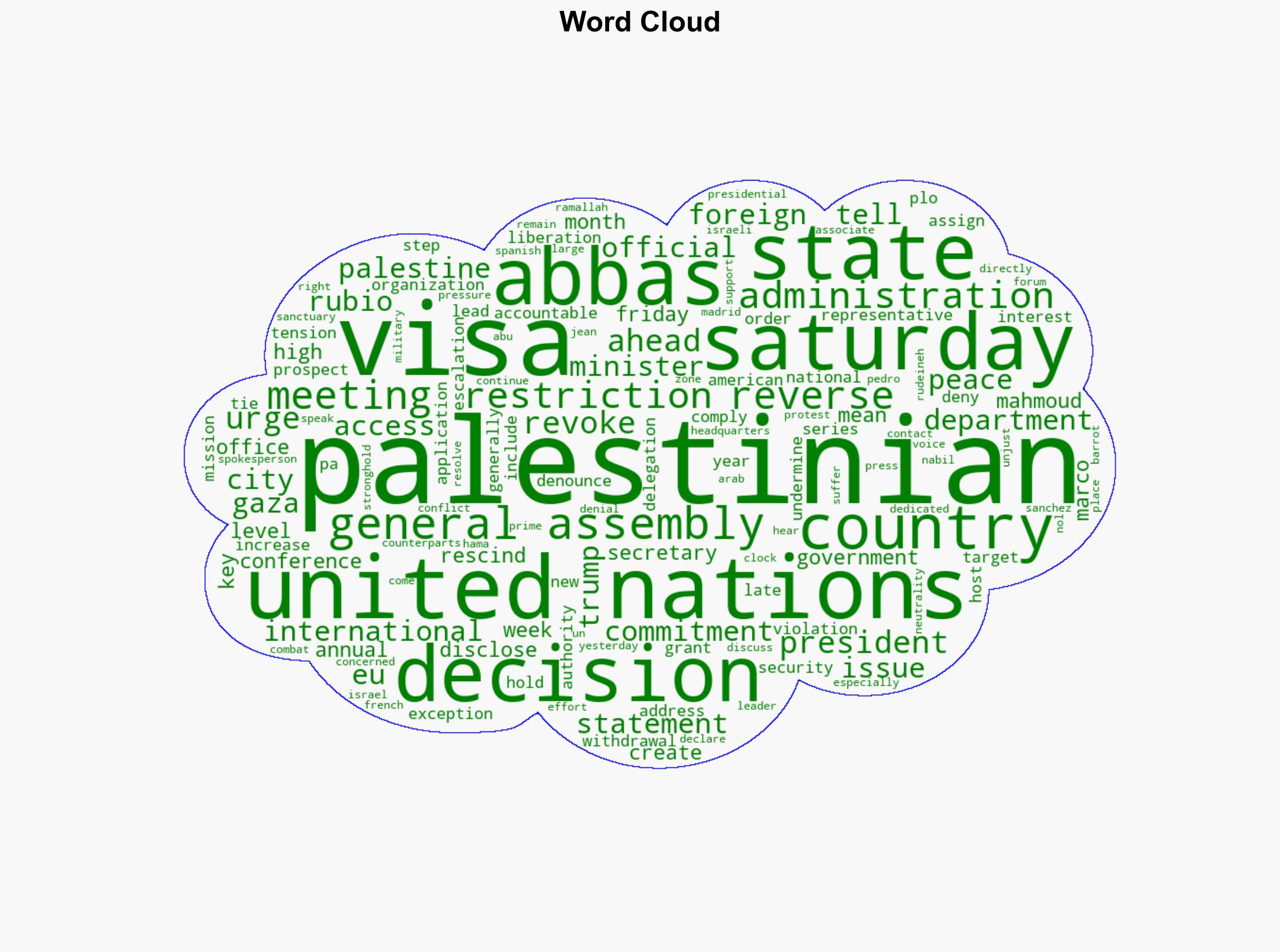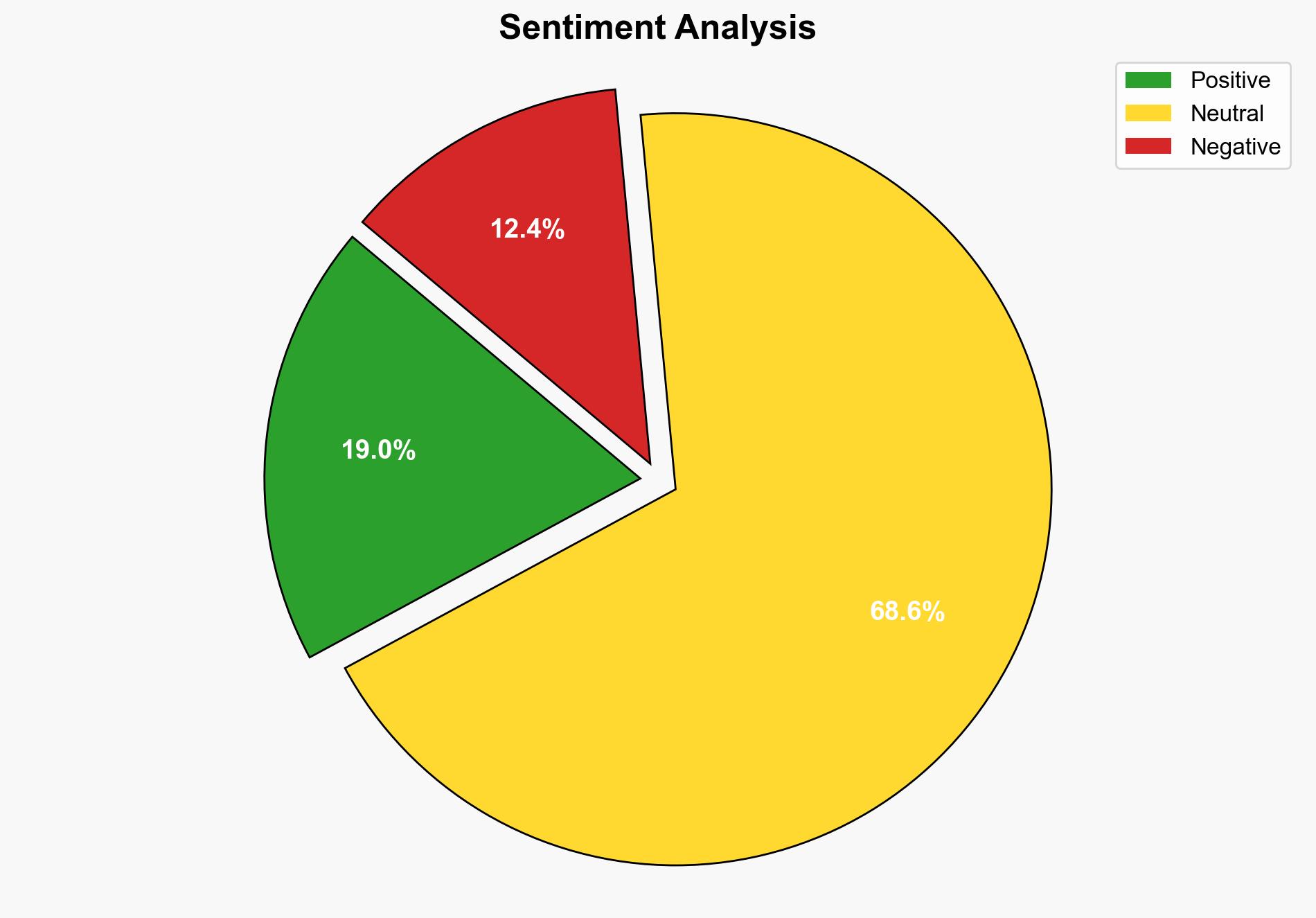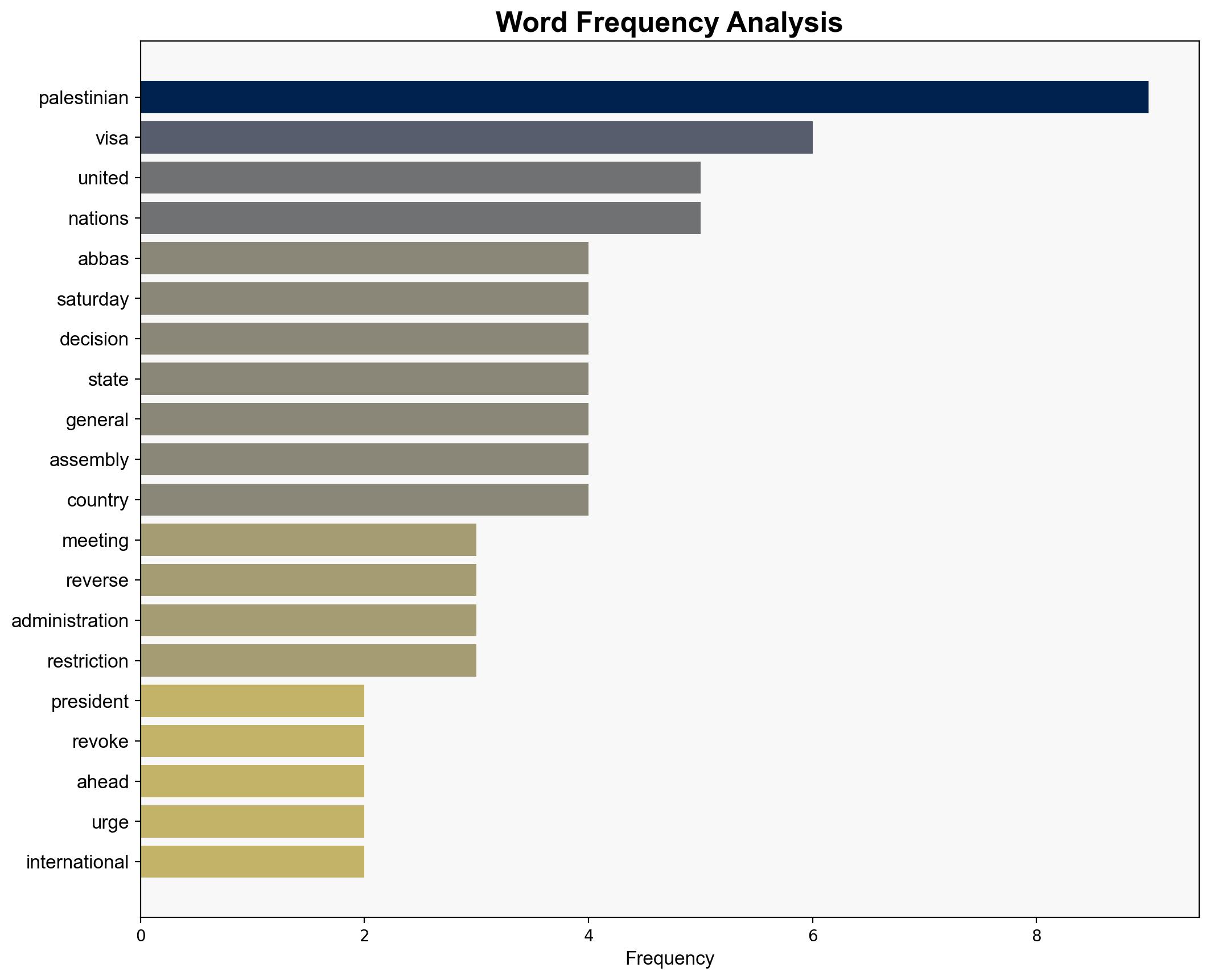Palestinian president’s visa to the US revoked ahead of key UN meetings – CBS News
Published on: 2025-08-30
Intelligence Report: Palestinian president’s visa to the US revoked ahead of key UN meetings – CBS News
1. BLUF (Bottom Line Up Front)
The revocation of the Palestinian president’s visa ahead of UN meetings is likely a strategic move by the US to exert pressure on Palestinian leadership, potentially to influence negotiations or as a response to perceived non-compliance with previous agreements. The most supported hypothesis is that this action is part of a broader US policy to realign its Middle East strategy. Confidence level: Moderate. Recommended action: Engage in diplomatic discussions to clarify US intentions and mitigate potential escalation.
2. Competing Hypotheses
1. **Hypothesis A**: The visa revocation is a tactical maneuver by the US to pressure the Palestinian leadership into compliance with specific diplomatic or security commitments.
– **Supporting Evidence**: The statement from the US about holding the PLO and PA accountable suggests a link to compliance issues.
– **Contradictory Evidence**: Lack of clear, publicized demands or conditions from the US side.
2. **Hypothesis B**: The revocation is primarily a symbolic gesture aimed at signaling a shift in US policy towards the Palestinian Authority, possibly aligning with broader geopolitical strategies in the region.
– **Supporting Evidence**: The action aligns with previous steps taken by the Trump administration targeting Palestinians.
– **Contradictory Evidence**: The potential diplomatic fallout and international criticism suggest it may not be purely symbolic.
3. Key Assumptions and Red Flags
– **Assumptions**:
– The US decision is based on strategic calculations rather than purely domestic political considerations.
– The Palestinian leadership’s response will be primarily diplomatic rather than escalating tensions.
– **Red Flags**:
– Lack of transparency regarding specific US demands or conditions.
– Potential misinterpretation of US actions by international actors, leading to unintended diplomatic consequences.
4. Implications and Strategic Risks
– **Geopolitical Risks**: Increased tensions between the US and Palestinian Authority could destabilize ongoing peace efforts and affect US relations with other Middle Eastern nations.
– **Diplomatic Risks**: Potential backlash from EU countries and other international actors who view the UN as a neutral ground.
– **Escalation Scenarios**: Further restrictions or retaliatory measures by the Palestinian Authority could lead to heightened regional tensions.
5. Recommendations and Outlook
- **Diplomatic Engagement**: Initiate back-channel communications with US officials to understand the underlying intentions and negotiate a resolution.
- **International Coalition Building**: Work with EU and other supportive nations to apply diplomatic pressure for a reversal or compromise.
- **Scenario Projections**:
– **Best Case**: US clarifies its position, leading to resumed diplomatic dialogue.
– **Worst Case**: Escalation of tensions resulting in broader regional instability.
– **Most Likely**: Continued diplomatic standoff with periodic negotiations.
6. Key Individuals and Entities
– Mahmoud Abbas
– Marco Rubio
– Nabil Abu Rudeineh
– Jean Nol Barrot
– Pedro Sanchez
7. Thematic Tags
national security threats, geopolitical strategy, diplomatic relations, Middle East policy





